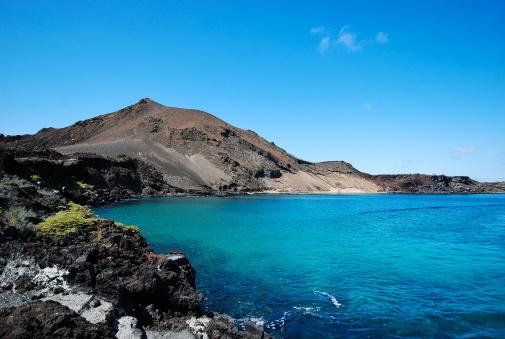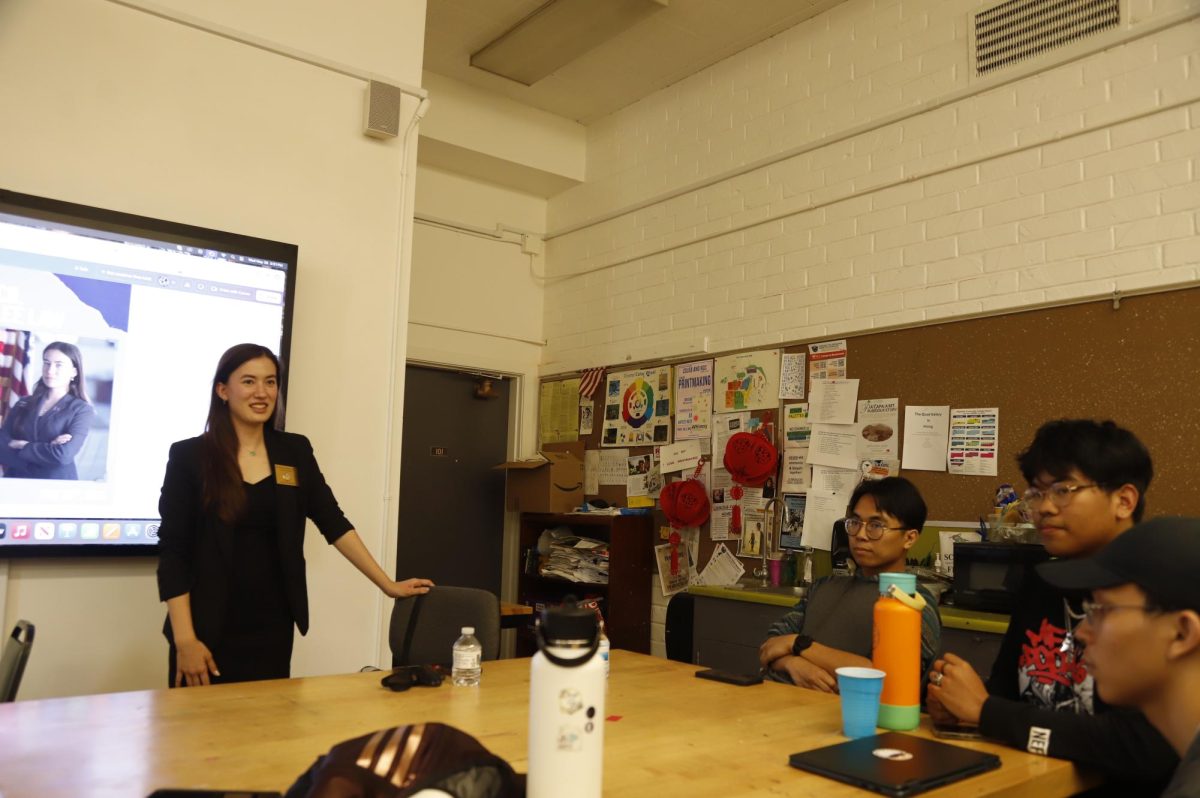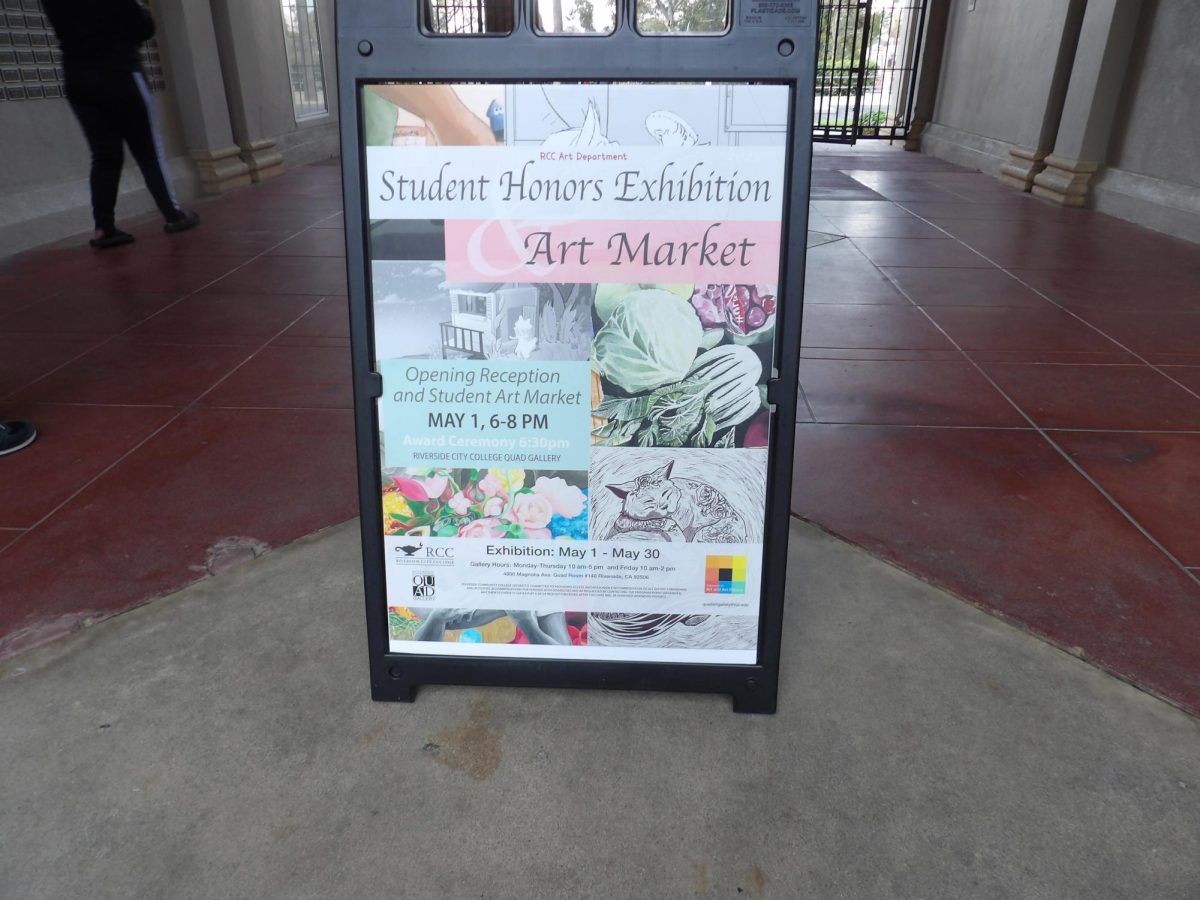Samuel James Finch | Special to Viewpoints
May 1, 2014

Ecology: The tiny islet of Bartolome Island (Isla Bartolome) is one of the younger of the Galapagos Islands
Ever since Charles Darwin first wrote of the great diversity of life found on each of the isolated Galapagos Islands, aspiring biologists all over the world have dreamt of observing the many species that he described.
For a group of Riverside City College students, that dream will come true this summer.
“For me, it’s mostly about putting a face to the place,” said Rocco O’Farrell, one of the students enrolled in RCC’s expedition through Ecology Project International.
O’Farrell, a biology major with prior military experience, signed up for the trip not only for the travel, but also so that he may one day apply his knowledge of explosives to study their effects on the environment.
“I’m a returning student and I thought it’d be a good opportunity to get back into the swing of things, to get back into the student mentality,” O’Farrell said.
Among those joining O’Farrell is the president of RCC’s Biological Club, Pauline McMinn, who one day hopes to work as a veterinarian for large cats, especially tigers.
“Because it’s in such a unique place,” McMinn said of the EPI field school, “I really wouldn’t be able to experience the same things if I went there by myself.”
McMinn is excited not only to work with the specialized forms of life on the islands, but to gain experience working in the environment that produced them.
“We’ll have no electronics except for a camera,” McMinn said. “And we’re given one backpack and one carry-on and we have to carry it for the duration of the trip.”
Though the new environment promises excitement, Kelsi Pope, another of McMinn and O’Farrell’s peers, is more realistic about her expectations.
“I’m nervous that I’m going to get homesick the first couple of days,” Pope said, “but after that I think I’ll be OK.”
Pope, who hopes to one day work as a physical therapist with a major league sports team, seconded O’Farrell’s interest in finally attaching a face to the islands.
Alongside the others, Tim Brown and Gabi Castillo signed up for the trip as a couple, both ecstatic about the organisms they would encounter together.
“I love marine life,” Castillo said. “So I would love to see how the animals in such a remote area adapt and thrive.”
Like Pope, however, Castillo has reservations of her own, not about the experience, but in regards to getting there.
“I’m deathly afraid of flying and I freak out, so I’m still mentally preparing to get on that airplane – two airplanes, actually,” Castillo said.
Though their backgrounds and aspirations may be as diverse as the species they desire to study, all of these students have come together for a common goal.
“EPI’s mission is to inspire science education by connecting students with researchers who are working in conservation hot spots,” said Kyle Watson, Recruitment and Airfare Coordinator for Ecology Project International. “These scientists are collecting data that inform environmental policy in the countries where they work.”
In addition to the Galapagos Islands, EPI has field schools established in Mexico, Belize, Costa Rica and Yellowstone National Park, with plans in motion to offer expeditions to Panama and Hawaii within the coming years.
Although the RCC students enrolled for the summer program admit that, as with any study abroad opportunity, the financial side of their preparation has been the most difficult, each has plans to continue their conservation efforts upon their return that anyone else might also take up should they feel so inclined.
“I’m considering going vegan,” said Pope. “Not only for health reasons, but just for the environment and how much healthier it is to raise just plants than it is to raise animals.”
There are other options to make a personal contribution to the health of the Earth’s ecosystems, as such dietary restrictions may not be the appropriate choice for every person wanting to make a difference.
“I’d like to volunteer with the park rangers to clean up the different trails and make sure hikers aren’t trashing them,” Brown said.
Whether it be in traveling to a distant land or working in the United States, there is much left to be done to further the lines of inquiry started by Charles Darwin and the ecological implications felt by all species who hope to evolve under changing environmental pressures.






